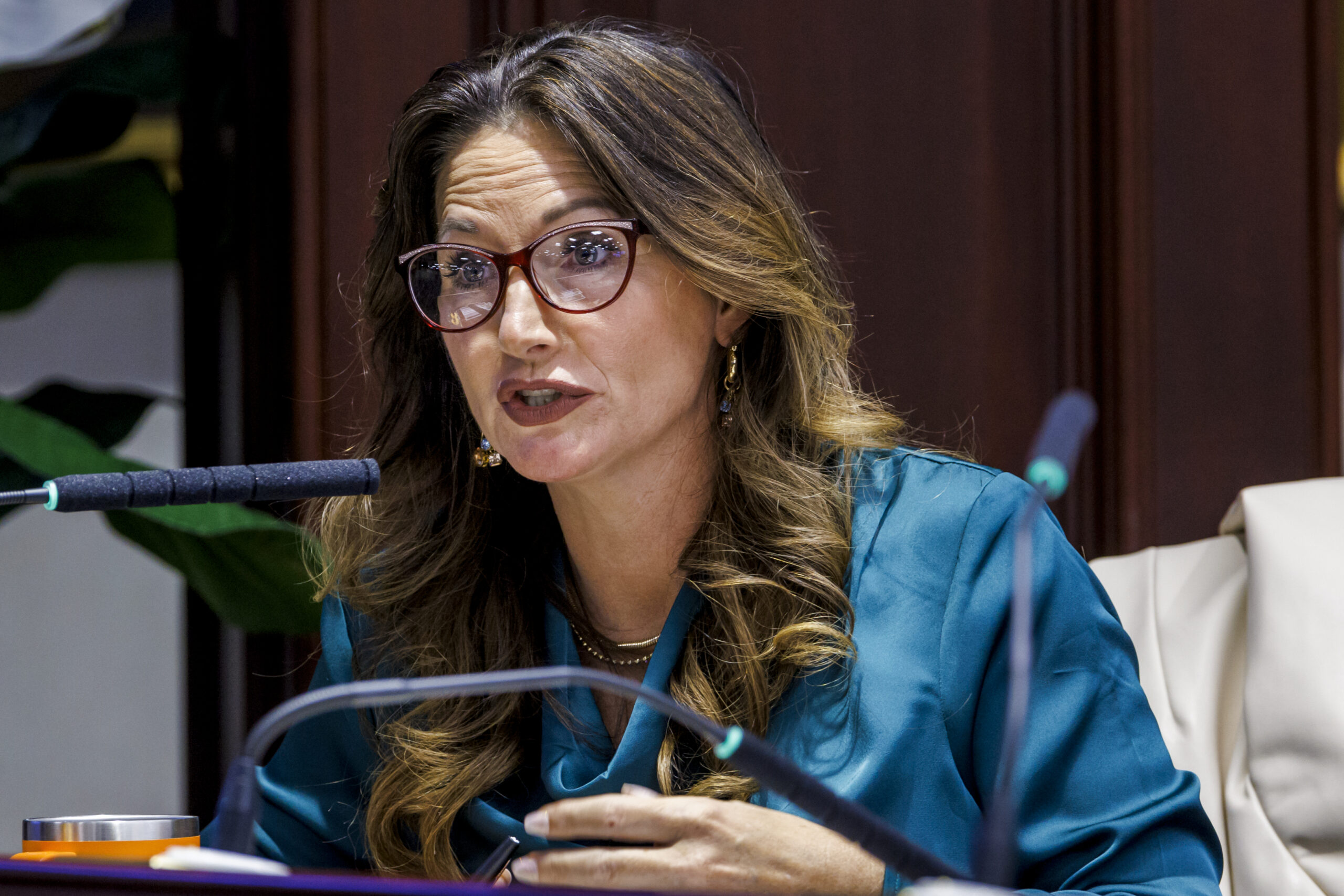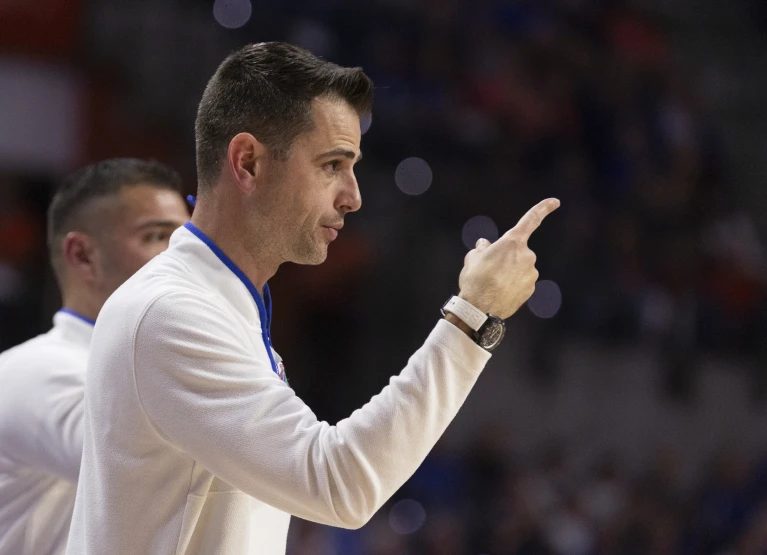We’ve got a FEMA faceoff, as different parts of the federal government are arguing over whether to keep the Federal Emergency Management Agency intact, move it out of the Department of Homeland Security (DHS), or abolish it altogether.
And Florida folks are playing an outsized role.
U.S. Reps. Byron Donalds and Jared Moskowitz are supporting a bipartisan plan to set up FEMA as a stand-alone agency, arguing that moving it away from DHS will make FEMA more efficient and better able to respond to disasters.
Under that proposal, FEMA’s head would be part of the President’s Cabinet and report directly to President Donald Trump. Moskowitz previously served as Florida’s Director of the Division of Emergency Management, operating a similar agency at the state level. Donalds, a close Trump ally, is running for Governor next year with the President’s support.
But that support may not extend to Donalds’ joint plan with Moskowitz to keep FEMA alive. Trump’s hand-picked Homeland Security Secretary, Kristi Noem, doesn’t want FEMA moved out of her agency. She wants FEMA axed altogether.
Reports emerged this week that Noem told a Trump Cabinet meeting that she was “going to eliminate” FEMA.
That’s stronger language than she has used before. But even Trump has floated eliminating the agency. So perhaps he’s finally putting those words into motion as part of his effort to completely dismantle parts of the federal government.
What does that mean for Florida, one of the most disaster-prone areas of the country? Well, likely nothing good. And the fact that Donalds and Moskowitz are working across the aisle to maintain some version of the agency shows there are major stakeholders who agree.
But does the President?
Now, it’s onto our weekly game of winners and losers.
Winners
Honorable mention: Kevin Marino Cabrera. Cabrera flew through his Senate confirmation hearing with flying colors as he prepares to become the U.S. Ambassador to Panama.
Trump picked Cabrera for the role late last year, and it appears he’s closing in on a start date for the position.
It’s an important one, given Trump’s insistence on the U.S. growing its influence over the Panama Canal, if not outright seizing control.
Cabrera faced questioning over those tensions regarding the shipping channel, leaning on his experience as a Miami-Dade County Commissioner, serving a region where shipping is integral.
Cabrera also worked as Florida State Director for Trump’s 2020 campaign. But his hearing featured Cabrera playing a more diplomatic role rather than echoing Trump’s often bombastic approach.
Expect him to clear his upcoming Senate vote easily.
Almost (but not quite) the biggest winner: Fiscal sanity. The first versions for the House and Senate budgets were released this week, and both chambers are looking to rein in spending.
The Senate’s proposed budget comes in at $117.36 billion. That’s a cut of $1.3 billion from spending levels during the last fiscal year.
The House gets even more cut-happy. They are outlining a budget of just under $113 billion, coming in even lower than the Senate and below Gov. Ron DeSantis’ proposed $115.6 billion budget.
This is just the beginning of the process, so we’ll see where these final numbers land. But both chambers — and the Governor, for that matter — are showing they are aware of the need to get Florida’s finances in order.
Last week, we spotlighted comments from the Miami-Dade County Mayor that some austerity may be coming after years of cash influx aided in part by federal COVID legislation.
Well those problems could exist at the state level as well, especially given the federal government’s, let’s say, unorthodox economic policy these first few months. Even members of the administration are signaling there will be a “transition” period and “corrections” in the economy as Trump continues toying with tariffs.
So who knows what’s on the horizon. And yes, Florida is flush with cash reserves. But to keep it that way, they’ll need to avoid continuing to hike spending every year regardless of the economic realities.
The biggest winner: Daniel Perez. In addition to his role overseeing the House’s budget proposal, Perez also stood out in The Process this week for taking two bold stances.
One got attention due to its catchiness as a Republican-on-Republican showdown, as the House voted Wednesday to override four DeSantis vetoes issued following the 2024 Session.
Lawmakers first raised the specter of such a move as GOP legislative leaders and DeSantis were locked in a showdown over a Special Session regarding immigration. That clash ended in compromise, but the House’s review of those vetoes continued forward.
“This Session, we have focused on restoring the institutional role of the Florida House of Representatives,” Perez said. And that independence is key to a well-functioning government. More than 9 times out of 10, GOP leaders in the Legislature will agree with the Governor on policy. But it’s good to know that Perez’s words aren’t empty and that the Legislature is willing to demonstrate that they will stand up to some of DeSantis’ worst impulses.
Perez’s second attention-grabbing move does align with a DeSantis policy position. Perez is moving forward to cut the state sales tax from 6% to 5.25%. That would save spenders close to $5 billion each year, per Perez.
Florida’s affordability crisis goes well beyond some extra dollars at the store. We’re still waiting for meaningful, effective reforms to help the housing market and fix the insurance crisis.
But Perez and Senate President Ben Albritton have promised movement on those issues as well. And combined with this push on dropping the sales tax, Florida lawmakers may yet be successful in stopping Florida from turning into New York or San Francisco and being synonymous with unaffordability.
Losers
Dishonorable mention: Cory Mills. Mills is facing an ethics probe, adding to personal problems already plaguing the lawmaker and making it increasingly difficult to follow through with his promise to mount a Senate Primary challenge to Republican U.S. Sen. Ashley Moody in 2026.
The House Ethics Committee announced Thursday that members will review whether Mills broke any rules by holding contracts with the government while serving in the House.
“Prior to being sworn in to Congress, Rep. Mills made a series of public statements regarding his business dealings with U.S. law enforcement agencies and foreign governments over the years,” read a report from the Office of Congressional Conduct, formerly the Office of Congressional Ethics.
“Government procurement records show companies owned by Rep. Mills have been awarded numerous federal contracts. These contracts primarily consist of purchase orders stemming from the manufacture and delivery of less than lethal ammunitions — products manufactured by the Member-owned entities Pacem Defense, LLC, Pacem Solutions International, LLC and ALS, Inc. — to federal law enforcement agencies and the U.S. Department of Justice.”
Mills said he plans to cooperate but slammed the claims he acted improperly as politically motivated.
Whether Mills was in the wrong here will be sussed out by the probe. But Mills is now navigating a proverbial minefield, promising to run for Senate in 2026 while this investigation continues and questions fly about his role in an incident police investigated as a potential assault.
Forget a promotion to the Senate, it’s reasonable that some voters may begin to ask whether Mills should serve in Congress at all.
Almost (but not quite) the biggest loser: Small-dollar Democratic donors. Last week, we gave Florida Dems a winner slot based in part on the jaw-dropping amount of money raised for Special Elections in two deep red congressional districts.
This week, a poll showed the Democrat in Florida’s 6th Congressional District in striking range of the presumed favorite, Republican state Sen. Randy Fine.
That gives even more hope to democrats frustrated with the Trump administration and seeing a razor-thin margin in the House. Every seat counts, and Democrats are now wondering if they can count either race in Florida’s 1st Congressional District or CD 6 as an upset.
Well, we’re now two days away from Election Day. So here’s where the rubber meets the road. Are Democrats going to pull off a miracle here?
Our verdict: No.
Young athletes learn early that winning isn’t everything. Maybe that’s true here as well, as cutting either of these races to an uncomfortable margin for Republicans can give Democrats some momentum heading into the Midterms and send a message about their displeasure with Trump.
But $10 million in a Trump +30 district in CD 6? Millions more in even redder CD 1?
We’re not saying Democrats shouldn’t have given this a shot. But without a win, a lot of this is wasted money. If they are after moral victories, they could have sent a message with much less.
As we said last week: “If these huge sums of money get wasted yet again, the rest of the country really needs to try to come to grips with the fact that Florida is a red state, and their green should go elsewhere.”
Unless a miracle happens Tuesday, we stand by that statement.
The biggest loser: Mike Waltz. Waltz is in hot water after this week. And if you somehow found yourself perusing this column within the vast sea of reading options across the World Wide Web, then you know why.
This story was so unbelievable even the reporter in the group chat couldn’t fathom it was real as it was happening, so we’re not going to bore you with a full recap.
The question everyone is wondering is: Does Waltz survive this?
After all, he was the one who added The Atlantic’s Jeffrey Goldberg to the chat in the first place. In a follow-up piece on this whole affair, Goldberg displayed much of the messages he received after laughable claims by the Trump administration that details about an impending attack that had not yet occurred were not classified.
So Goldberg released text and images of the conversation. Right at the top of the image of Goldberg’s perspective read, “Michael Waltz added you to the group.”
And Waltz has already said a staffer wasn’t responsible for adding Goldberg. So by process of elimination, our friends, that means Waltz did it.
Waltz has tried a bunch of silly tactics to get out of this, making it seem like some technical mystery that needs solving and taking needless shots at Goldberg, whose reporting Trump has hammered for years.
So again, does Waltz survive this?
Trump publicly has stood by him. Point for Waltz.
Privately, it’s reportedly a different story. And see it’s not just the Signal chat. Passwords belonging to Waltz were among a trove of public officials’ info uncovered by German outlet Der Spiegel. Waltz’s passwords were among that trove. Separate reporting also showed Waltz left his Venmo friends list viewable to the public.
That all adds to the drip-drip-drip of controversy Trump is always eager to avoid. It also had proved to override Team Trump’s strategy, as explained by adviser Steve Bannon, to “flood the zone with shit” — i.e. make so many button-pushing moves that the media and the public can’t catch up, allowing Trump to emerge scot-free from it all and accomplish his agenda.
Well, no luck here. This story broke through, and in a big way. And back to that Venmo list, it showed Waltz was friends with several media figures even, gasp, a CNN host.
That’s not controversial, nor should it be. But see, we’re still stuck on why Waltz had Goldberg’s number to begin with. We don’t have an inside info here, but if Trump begins to believe Waltz might be friendly with one of Trump’s many media enemies, that may do more to convince the President that Waltz needs to go than even this catastrophic security breach.
That is, as Trump might say, sad! But it’s the truth. And if that’s not enough, this story continuing to drag out and serve as a cudgel against this administration’s competence will.
Waltz better hope this story blows over soon. And the administration — Waltz included — would do well to stop trying to gaslight the public if that’s going to happen.
Post Views: 0

 Entertainment8 years ago
Entertainment8 years ago
 Politics8 years ago
Politics8 years ago
 Entertainment8 years ago
Entertainment8 years ago
 Entertainment8 years ago
Entertainment8 years ago
 Tech8 years ago
Tech8 years ago
 Tech8 years ago
Tech8 years ago
 Politics8 years ago
Politics8 years ago
 Tech8 years ago
Tech8 years ago











